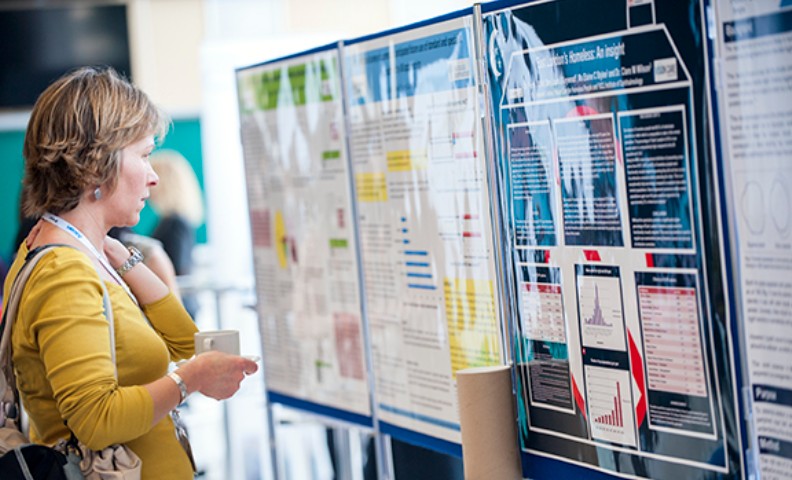
This session will be held as part of the DPH2025 conference at the VidaMar Hotel, Madeira.
Date: Saturday, 26th July 2025
Time: 15:30 – 16:30
List of the accepted submissions for the Posters & Demos session:
Posters
| ICU Patients Rehabilitation Using Virtual Reality Inês Oliveira (Faculty of Engineering of the University of Porto) et al. |
| Machine Learning-Based Prediction of Cardiovascular Disease Risk: A 5-Year Forecast Using 22 Million Data Points from Nordic Countries and France Arti Rawat (Team AHeaD, BPH Inserm 1219, Univ. Bordeaux, F-33000, Bordeaux, France) and Gayo Diallo (ibid) |
| Intelligent Platform for Public Health Workforce Management in Kazakhstan Assem Imandossova (Kazakhstan Healthcare Managers Association), Nurzhan Mukashev (SDU University) and Ainur Kumar (Asfendiyarov Kazakh National Medical University) |
| Digital Health Education for Chronic Lung Disease: Scoping Review Chao Sun (Leiden University Medical Center, China) et al. |
| Diagnostic assistive tools for schistosomiasis morbidity: automated classification of periportal fibrosis from ultrasound video Eloise S. Ockenden (Nuffield Department of Population Health and Institute of Biomedical Engineering, University of Oxford), J. Alison Noble (Institute of Biomedical Engineering, University of Oxford) and Goylette F. Chami (Nuffield Department of Population Health, University of Oxford) |
| How has the experience of COVID-19 shaped perceptions of pandemic risk? An ongoing comparative study. Emma Back (University College London) |
| Building a Digital Public Health Metrics System: A Case Study on Estimating Healthy Adjusted Life Expectancy (HALE) in the UAE Sami Almudarra (Gulf Centre for Disease Prevention and Control) |
| Predicting hospital admissions for immunotherapy related adverse events in patients with melanoma using machine learning Lakshya Sharma (Curenetics; University College London) et al. |
| Feasibility of Estimating Upper Limb Function Using a PC Camera-Based Serious Game Application in Preschool Children Satoko Ohmatsu (Digireha Inc., Japan), Kanako Nakamura (Digireha Inc., United Kingdom) and Yasuaki Kusumoto (Fukushima Medical University, Japan) |
| Profiling the trajectories of Aedes-borne infestation risk in Campina Grande neighbourhoods: a repeated cross-sectional study within a Bayesian framework Anwar Musah (University College London) et al. |
| Reducing Anxiety in Hospitalized Children Using VR/AR and Storytelling-Based Interventions Tatiana Losik (IADE – Faculdade de Design, Tecnologia e Comunicação and Instituto Politécnico do Cávado e do Ave, Portugal) and Nuno Miguel Feixa Rodrigues (INESC-TEC, Porto and 2Ai, School of Technology, IPCA, Barcelos, Portugal) |
| GCC Current Landscape Health Data Governance Assessment Ahmed Alhatlan (Gulf Centre for Disease Control and Prevention) et al. |
| Use of Intervention Mapping to develop Orchid, a new digital tool for reproductive life planning Catherine Stewart (University College London), Jeniffer Hall (ibid.) et al. |
Demos
| Mobile Applications and IoT Systems for Mosquito Surveillance to Improve Vector Control in Madeira and Brazil Paul Reynolds (University College London) et al. |
| FluFighters: A Storytelling Simulation Game for Epidemic Response Arnold Bosman (Pandemos BV, Netherlands) |
| The value of the World Animal Health Information System (WAHIS) for animal and public health Peter Melens (WOAH, France) |
| Assessing the public health threat of healthcare cyberattacks: A data-driven approach to identifying patient-level harms and at-risk clinical groups Isabel Straw (University of California, San Diego), Christian Dameff (ibid) and Jeffrey Tully (ibid) |
| Visual Endpoints in GM1 & GM2 Gangliosidosis – A More Sensitive Approach to Disease Diagnosis, Progression Tracking, and Drug Development Meghan Conroy (CaptureProof, US), Femida Gwadry-Sridhar (University of Western Ontario, Canada) and Dan Lewi (Cats Foundation, Portugal) |
